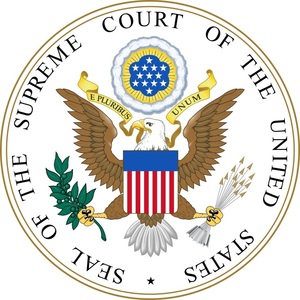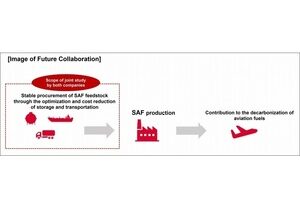Supreme Court reverses Tenth Circuit decision on SRE ‘extensions’
Energy Disrupter
ADVERTISEMENT
The U.S. Supreme Court on June 25 reversed the Tenth Circuit Court of Appeal’s January 20, 2020, decision on small refinery exemptions (SREs), ruling that the U.S. EPA can extend SREs to small refineries whose earlier temporary exemptions had lapsed. Other aspects of the lower court’s ruling were not reviewed by the Supreme Court and have not been overturned.
The Tenth Circuit Court ruling stemmed from a May 2018 challenge brought against the EPA by the Renewable Fuels Association, the National Corn Growers Association, the American Coalition for Ethanol and the National Farmers Union in which the biofuel groups challenged three SREs previously approved by the agency. Those refineries are owned by affiliates of Wynnewood Refining and HollyFrontier. Nearly two years after the challenge was filed, the Tenth Circuit Court issued its decision, vacating the three SREs, which the court said were improperly issued by the EPA. The lower court’s decision also held that the EPA cannot “extend” exemptions to any small refinery whose earlier, temporary exemptions had lapsed.
Wynnewood and HollyFrontier challenged the Tenth Court’s decision. The refiners in March 2020 requested a rehearing en banc of the Jan. 24 ruling. Those petitions were rejected by the court in April 2020.
The two refining companies escalated their challenge over the court ruling in September 2020 when they filed a petition for a writ of certiorari with the Supreme Court. The U.S. Department of Justice filed documents with the court in December recommending against Supreme Court review of the Tenth Circuit Court’s ruling. Despite that recommendation, the Supreme Court on Jan. 8 granted the petition for review filed by Wynnewood and HollyFrontier.
The EPA issued an announcement in February 2021 stating that the agency, now under the Biden administration, had changed course, and now supports the Tenth Circuit’s SRE ruling. The agency said its decision was prompted by a detailed review following the Supreme Court’s announcement that it would review the case and represents a change from the agency’s position before the Tenth Circuit. “The change reflects the agency’s considered assessment that the Tenth Circuit’s reasoning better reflects the statutory text and structure, as well as Congress’s intent in establishing the RFS program,” the agency said in its announcement.
The Supreme Court held oral arguments pertaining to its review of the Tenth Circuit’s decision on April 27. Those arguments focused largely on how the Renewable Fuel Standard statute’s use of the word “extension” should be interpreted. Representatives of the small refineries argued for a broad interpretation of the word “extension” and against the lower court’s position that an “extension” can only be granted if a small refinery has received a continuous, uninterrupted string of SRE approvals.
The EPA and biofuel groups advocated for a narrower interpretation of the word “extension” and urged the justices to affirm the lower court’s ruling.
The Supreme Court issued its decision on June 25, reversing the lower court’s decision and allowing small refineries to petition for and receive SREs even if a lapse of the exemption has occurred in previous years.
The court’s decision was split six to three. Justice Neil Gorsuch delivered the court’s opinion, writing that the statute’s text “nowhere commands a continuity requirement” and that “the respondents have not shown that EPA’s approval of the petitioners’ exemption requests was in excess of the agency’s statutory authority.
Justices Amy Coney Barrett, Sonia Sotomayor and Elena Kagan dissented to the opinion, writing that the “court’s contrary conclusion caters to an outlier meaning of ‘extend’ and clashes with statutory structure.”
The EPA has not yet indicated what the Supreme Court’s decision could mean for the remaining “gap year” SRE petitions filed by small refineries in an effort to circumvent the Tenth Circuit Court’s January 2020 ruling. The EPA in September 2020 denied several gap year SRE petitions. That was, however, several months before the Supreme Court agreed to review the lower court’s decision.
According to the EPA’s online SRE dashboard, a total of 19 gap year SRE petitions are currently pending for compliance years 2011 though 2018. An additional 32 SRE petitions are pending for compliance year 2019, with 18 pending for compliance year 2020.
Biofuel groups on June 25 expressed disappointment with the Supreme Court’s opinion.
The RFA, NCGA, NFU and ACE, the original petitioners in the Tenth Circuit Case, issued a joint statement pointing out that the lower court also ruled that EPA’s exemption decisions must reconcile the agency’s consistent findings that all refineries recover the cost of compliance with the RFS, and that EPA may only use hardship caused by the RFS to justify granting exemptions. Despite today’s Supreme Court decision, EPA must still resolve those other aspects of the Tenth Circuit ruling, the groups said.
“Nearly a year and a half ago, the Tenth Circuit handed down a unanimous decision that was ultimately adopted by the very agency we took to court in the first place,” coalition members said. “While we are extremely disappointed in this unfortunate decision from the Supreme Court, we will not stop fighting for America’s farmers and renewable fuel producers. Further, we are optimistic that other elements of the Tenth Circuit decision, which were not reviewed by the Supreme Court, will compel the Biden administration and EPA’s new leadership to take a far more judicious and responsible approach to the refinery exemption program than their predecessors did.”
Irrespective of today’s decision, the Biofuels Coalition thanked President Biden and EPA Administrator Regan for taking swift action to rein in the previous administration’s mismanagement of the small refinery exemption program. After carefully reviewing the issue, new EPA leadership in February reversed the agency’s previous position and announced support for the Tenth Circuit decision. In April, EPA decided to revoke three last-minute refinery exemptions granted the day before President Biden’s inauguration; and in May, EPA announced it would cooperate with a Government Accountability Office investigation into the past administration’s adjudication of small refinery exemptions.
Growth Energy expressed disappointment with the court’s opinion. “The Supreme Court disagreed with the lower court’s view of extensions, but today’s decision does nothing to change the 10th Circuit’s ruling that exemptions cannot be granted when refiners cannot properly trace their hardship to compliance with the Renewable Fuel Standard (RFS),” said Emily Skor, CEO of Growth Energy. “In the past, the biofuel industry has looked to the courts to halt abuse. Today, new leaders at the Environmental Protection Agency have shown a willingness to defend the RFS, most recently by reversing three improperly granted exemptions. We look forward to working with the Biden administration to keep a lid on exemptions, further strengthen the RFS, and fast-track our progress toward decarbonization. Engine smart and earth kind biofuels are vital to achieving the nation’s climate goals.”
The Iowa Renewable Fuels Association also slammed the court’s opinion. “We are extremely disappointed the Supreme Court didn’t uphold the 10th Circuit Court ruling on eligibility to request RFS refinery exemption extensions,” said Monte Shaw, executive director of the IRFA. “I am not a lawyer, but it sure seems like the 10th Circuit Court got it right when they determined that a refinery can’t extend something it no longer has. However, it is important to remember this case only applied to one of the three major findings from the 10th Circuit Court. Today’s decision allows refiners to apply to extend RFS exemptions that have lapsed. But this case did not impact the 10th Circuit’s ruling that refiners must still prove economic harm directly related to compliance with the RFS. Just as importantly, the 10th Circuit also found that EPA cannot use RIN costs as a cause of economic harm while simultaneously admitting RIN costs are recovered in the refiner’s crack spread. As the Biden EPA has pledged to follow the 10th Circuit Court ruling, today’s decision allows refiners to request an RFS exemption extension, but it does not make it easier for refiners to actually receive one. We fully expect the Biden EPA to keep their commitment to the RFS and to apply the 10th Circuit Court standards relating to economic harm, and as a result, to deny the vast majority of RFS exemption extension requests that are pending or that will be submitted in the future.”
The Advanced Biofuels Association said the court is wrong. “We are greatly disappointed by the Supreme Court’s ruling to overturn the 10th Circuit decision with regard to small refinery exemptions,” said Michael McAdams, president of the ABFA. “Frankly, the Court got this one wrong. We do not expect, however, that this decision will impact the current Administration’s view on using SREs moving forward.”
The National Biodiesel Board said it is dismayed by the Supreme Court’s decision. “The Supreme Court decision is dismaying because it leaves uncertainty about when EPA may offer exemptions to small refineries,” said Kurt Kovarik, vice president for federal affairs at NBB. “These exemptions harm biodiesel and renewable diesel producers when they reduce demand for advanced biofuels. EPA has provided multiple ways for refiners to meet the Clean Air Act’s RFS requirements, including an outsized bank of reserve RIN credits. The agency must issue the 2021 RFS rules as soon as possible and ensure that RFS volumes it sets are met, with full accounting for any small refinery exemptions in plans to grant.”
















